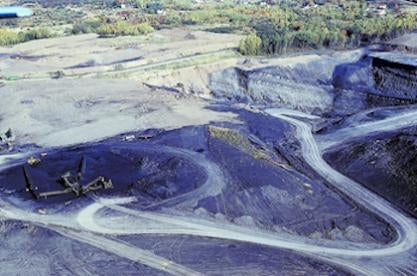Opposing a proposed Mine Safety and Health Administration (MSHA) rule changing the civil penalty assessment formula for violations of the Federal Mine Safety and Health Act (30 CFR Part 100) to ratchet up penalties, a coalition of mining industry companies has followed public hearing testimony with a detailed analysis pointing out the flaws and unfairness MSHA’s proposed revision.
The MSHA penalty rules and assessment formula are triggered by the agency’s inspectors that “check boxes” on citation forms, evaluating the level of gravity and negligence of alleged violations.
Using MSHA enforcement data and legal arguments, the Coalition showed the proposed changes would cause a massive, counterproductive, and improper increase in enforcement. The Coalition criticized MSHA for not providing data analysis and evidence that the current penalty system was in need of change. It also criticized the agency for failing to show the proposed changes would advance safety and health. The Coalition asserted that the proposed rules will result in expanding the use of severe enforcement tools, increasing penalties for non-serious violations, discouraging a focus on serious hazards, diluting safety resources, and removing incentives for voluntary actions needed to continue the remarkable safety improvements that have occurred since the passage of the 1977 Mine Act.
The Coalition demonstrated its concerns by analyzing how the proposed rule would expand the use of “unwarrantable failure” citations, closure orders, and individual civil penalties against management personnel. By reducing citation classifications (the check boxes on the citation forms) for gravity and negligence, and changing the definitions of these terms, the Coalition argued the agency will increase negligence and “significant and substantial” designations by its inspectors, blur the risk-fault based enforcement scheme of the Act, and eliminate incentives for voluntary safety initiatives by mandating that inspectors ignore “mitigating factors” in classifying violations (e.g., self-inspections, protective equipment use, safety rule enforcement, training, and other proactive programs).
The proposed changes are illogical, arbitrary, capricious, and contrary to the Mine Act and the history of litigation under the Act, the Coalition stressed. Legal analysis combined with an extensive data analysis support this assertion. The Coalition illustrated its analysis of the proposed rule’s potential impact on penalties driven by findings of negligence using a large metal/nonmetal operator’s total violation history over two years. During that period, the operator accumulated approximately 900 citations. Of those, approximately 2% were rated “no negligence,” 24% were rated “low negligence,” 68% were rated “moderate negligence,” 6% were rated “high negligence.” None was rated “reckless disregard.” This means that, with the proposed rule’s fewer categories in effect, approximately 98% of all citations received by the operator would be rated “negligent,” with a 50% greater negligence penalty for those rated “moderate negligence” under the current rule, and an increase of over 212% for those originally rated “low negligence.” The 6% that were originally rated “high negligence” would see a net increase in penalty of approximately 78%. Of course, these increases are based on only the proposed rule’s negligence point reallocations and do not account for the massive increase in unwarrantable failure findings, “significant and substantial” findings, and closure orders that can be expected to result from these and the proposed “likelihood” classification changes.
The Coalition’s comments covered all aspects of the proposed rule, particularly MSHA’s consideration of provisions aimed at restricting the authority of the Federal Mine Safety and Health Review Commission to set penalties in contested cases that are different than those proposed by MSHA. The Coalition noted that Congress delegated that authority only to the Commission and it was not within MSHA’s power to restrict the Commission.




 i
i


